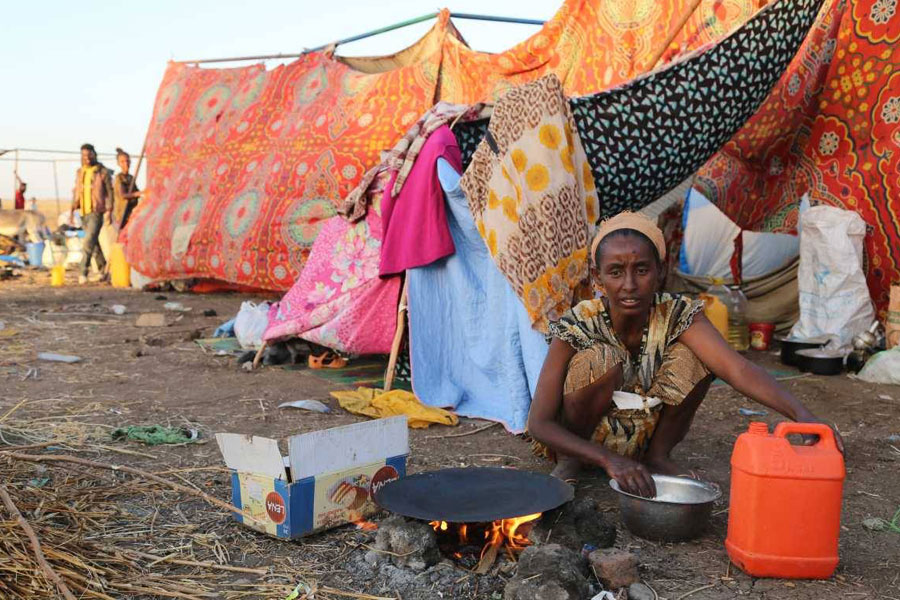
Commentaries | Aug 16,2020
In the misty break of dawn, the usually scuttling Lamberet Bus Terminal in Addis Abeba stood comparatively quiet. This terminal serves as a primary gateway to the conflict-prone regions of Amhara and Tigray. Recent unrest and safety concerns have drastically altered the usual bus routes, leaving many stranded and frustrated. Travellers initially planning a bus journey resort to flying due to unpredictable bus schedules, driven by conflict-induced route changes. These route detours, sometimes adding an extra 180Km, do not just disrupt plans; they also increase costs for passengers and wear down vehicles, especially as they pass through the sweltering heat of the arid landscape in the Afar Regional State.
Long-serving bus drivers reflect on the profound shift in the dynamics of their work. The once straightforward job now bristles with tension and fear. Increased fare prices, meant to cover the added travel costs, hardly compensate for the heightened risks and the longer, more challenging routes. Data from the transport hubs in Addis Abeba show a worrying trend. There has been a drastic drop in passengers – nearly half a million fewer between July and September compared to the previous year. Young intermediaries, who earn commissions by linking passengers with bus services, face the brunt of this downturn.
The broader transportation sector feels the strain. Once-thriving public transport companies are on the brink, forcing many business owners to redirect to other industries. Some are forced to sell their businesses due to stranded vehicles and mounting debts. They blame not only the security situation but also the economic challenges like inflation and crushing loan repayments. The nexus between transport and security is undeniable. Experts, from academia to economics, concur that the state of transportation mirrors the country's security. While the government can stipulate routes, the onus of guaranteeing road safety falls squarely on its shoulders. In these turbulent times, as the confidence in ground transportation wanes, many seek solace in the skies, making flights not just a matter of speed but security.
You can read the full story here
PUBLISHED ON
Sep 23,2023 [ VOL
24 , NO
1221]

Commentaries | Aug 16,2020

Viewpoints | May 18,2024

Commentaries | Sep 14,2024

Commentaries | May 25,2019


Fortune News | Apr 22,2022

Viewpoints | Jun 18,2022

Agenda | Dec 05,2020

Agenda | Jun 08,2025

Editorial | Dec 29,2018

Dec 22 , 2024 . By TIZITA SHEWAFERAW
Charged with transforming colossal state-owned enterprises into modern and competitiv...

Aug 18 , 2024 . By AKSAH ITALO
Although predictable Yonas Zerihun's job in the ride-hailing service is not immune to...

Jul 28 , 2024 . By TIZITA SHEWAFERAW
Unhabitual, perhaps too many, Samuel Gebreyohannes, 38, used to occasionally enjoy a couple of beers at breakfast. However, he recently swit...

Jul 13 , 2024 . By AKSAH ITALO
Investors who rely on tractors, trucks, and field vehicles for commuting, transporting commodities, and f...

Oct 25 , 2025
The regulatory machinery is on overdrive. In only two years, no fewer than 35 new pro...

Oct 18 , 2025
The political establishment, notably the ruling party and its top brass, has become p...

Oct 11 , 2025
Ladislas Farago, a roving Associated Press (AP) correspondent, arrived in Ethiopia in...

Oct 4 , 2025
Eyob Tekalegn (PhD) had been in the Governor's chair for only weeks when, on Septembe...